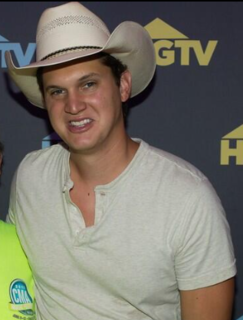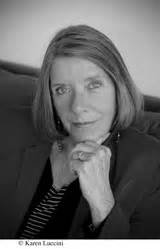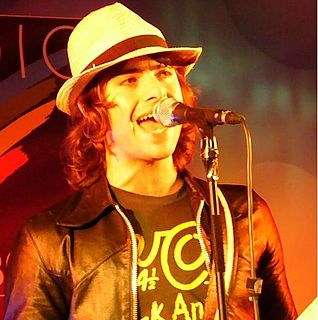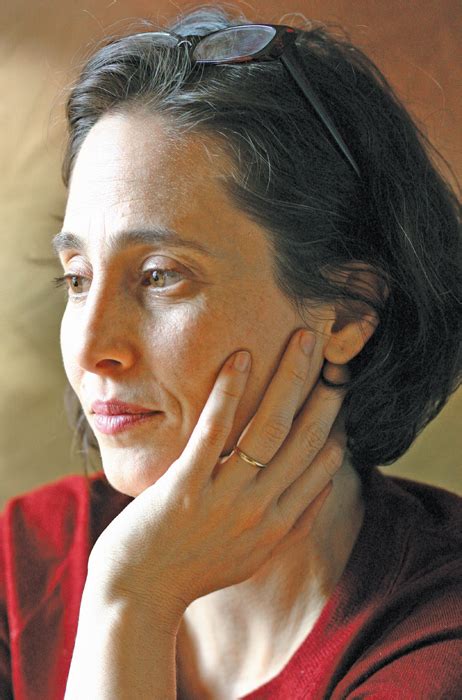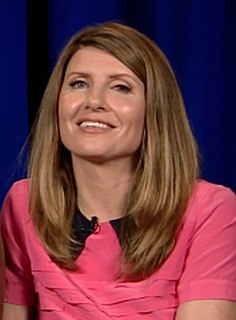Top 1200 Writing Dialogue Quotes & Sayings - Page 5
Explore popular Writing Dialogue quotes.
Last updated on April 21, 2025.
But when a man draws a lifeless thing into his passionate longing for dialogue, lending it independence and as it were a soul, then there may dawn in him the presentiment of a world-wide dialogue with the world-happening that steps up to him even in his environment, which consists partially of things. Or do you seriously think that the giving and taking of signs halts on the threshold of that business where an honest and open spirit is found?
People don't live their lives in a series of scenes that form a dramatic narrative, they don't speak in dialogue, they're not lit by a cinematographer or scored by a composer. The properties of real life and the properties of drama have almost nothing to do with each other. The difference between writing about reporters and being a reporter is the same as the difference between drawing a building and building a building.
Although Kim Jong Un is a very unreasonable leader and has a firm, unreasonable belief that nuclear and missile weapons will protect him and his regime, we will continue to employ all possible means - sanctions, pressure, as well as dialogue - to draw North Korea to the negotiating table for denuclearization. To resolve the issue, we have to add dialogue to the current menu of sanctions and pressure.
Reading aloud sounds like a good idea, but honestly, it doesn't work very well. Good dialogue in a book doesn't actually bear much resemblance to real-life dialogue. For example, if you've ever seen a word-for-word transcript of people talking, it doesn't read off the page very well. The trick is to make it *seem* like it's being spoken, not to make it speakable.
Actually, I've taught creative writing in Turkey, at an English language university, where the students were native Turkish speakers, but they were writing their essays in English, and they were very interesting - even the sense of structure, the conventions of writing, the different styles of writing.
Right now-whether you're in writing courses getting "paid" in credit for writing, or burdened and distracted by earning a living and changing diapers-figure out how to make writing an integral part of your life. Publication is good, and gives you the courage to go on, but publication is not as important as the act of writing.
Writing fiction is very different to writing non-fiction. I love writing novels, but on history books, like my biographies of Stalin or Catherine the Great or Jerusalem, I spend endless hours doing vast amounts of research. But it ends up being based on the same principle as all writing about people: and that is curiosity!
Whether it's writing a monologue or writing standup or writing a screenplay or writing a play, I think staying involved in the creation of your own work empowers you in a way, even if you don't ever do it. It gives you a sense of ownership and a sense of purpose, which I think as an actor is really important.
Plato used the dialogue format because the exchange of views, the posing and answering of questions, showed that understanding is a living, dynamic process. He distrusted writing because the settled character of the written word makes it look as if truth can be fixed and made to stand still. It is worth remembering that this greatest advocate of the objective reality of truth also believed that our access to that truth was sustained in reasoned discussion.
I got into dialogue because my parents began taking me to see plays from when I was very young. Too young, often, to understand the play I was watching: Who's Afraid Of Virginia Woolf when I was nine years old; That Championship Season when I was ten years old. But I loved the sound of dialogue; it sounded like music to me and I wanted to imitate that sound.
Working on Drive, a lot of fun. This is Tim Minear whom I've worked with before on Firefly of course. He called me up and said I've got a part for you that you will love and I love Tim's writing. I love his stories. I love his characters, his dialogue. He has a knack for reveals and he has a knack for moments.
In this work (peace building), the role of religion is fundamental. It is not possible to build bridges between people while forgetting God, ... But the converse is also true: it is not possible to establish true links with God while ignoring other people. Hence it is important to intensify dialogue among the various religions, and I am thinking particularly of dialogue with Islam.
On the craft level, writing for children is not so different from writing for adults. You still have to have a story that moves forward. You still have to have the tools of the trade down. The difference arises in the knowledge of who you're writing for. This isn't necessary true of writing for adults.
Writing, for me, when I'm writing in the first-person, is like a form of acting. So as I'm writing, the character or self I'm writing about and my whole self - when I began the book - become entwined. It's soon hard to tell them apart. The voice I'm trying to explore directs my own perceptions and thoughts.
Writing has to do with truth-telling. When you're writing, let's say, an essay for a magazine, you try to tell the truth at every moment. You do your best to quote people accurately and get everything right. Writing a novel is a break from that: freedom. When you're writing a novel, you are in charge; you can beef things up.
Non-violence means dialogue, using our language, the human language. Dialogue means compromise; respecting each other’s rights; in the spirit of reconciliation there is a real solution to conflict and disagreement. There is no hundred percent winner, no hundred percent loser—not that way but half-and-half. That is the practical way, the only way.
From 1940 to about 1960, I had been writing just regular comics, the way my publishers wanted me too. He didn't want me to use words of more than two syllables if I could help it. He didn't want me to waste time on worrying about good dialogue or characterization. Just give me a lot of action, lot of fight scenes.
Unless there is a strong sense of place there is no travel writing, but it need not come from topographical description; dialogue can also convey a sense of place. Even so, I insist, the traveler invents the place. Feeling compelled to comment on my travel books, people say to me, "I went there"---China, India, the Pacific, Albania-- "and it wasn't like that." I say, "Because I am not you.
Working on 'Drive', a lot of fun. This is Tim Minear whom I've worked with before on 'Firefly' of course. He called me up and said, 'I've got a part for you that you will love,' and I love Tim's writing. I love his stories. I love his characters, his dialogue. He has a knack for reveals and he has a knack for moments.
Writing for adults and writing for young people is really not that different. As a reporter, I have always tried to write as clearly and simply as possible. I like clean, unadorned writing. So writing for a younger audience was largely an exercise in making my prose even more clear and direct, and in avoiding complicated digressions.
When I'm editing my work, I'm looking for everything to fit, to feel seamless, for every detail or line of dialogue or scene to feel necessary and organic. I approach the writing of others in much the same way while always working to preserve the writer's voice. To allow myself to be vulnerable on the page, I tell myself no one is going to read my work. There's no way I could put myself out there otherwise.
The secret to writing is just to write. Write every day. Never stop writing. Write on every surface you see; write on people on the street. When the cops come to arrest you, write on the cops. Write on the police car. Write on the judge. I'm in jail forever now, and the prison cell walls are completely covered with my writing, and I keep writing on the writing I wrote. That's my method.
I haven’t had trouble with writer’s block. I think it’s because my process involves writing very badly. My first drafts are filled with lurching, clichéd writing, outright flailing around. Writing that doesn’t have a good voice or any voice. But then there will be good moments. It seems writer’s block is often a dislike of writing badly and waiting for writing better to happen.
If you have to find devices to coax yourself to stay focused on writing, perhaps you should not be writing what you're writing. And if this lack of motivation is a constant problem, perhaps writing is not your forte. I mean, what is the problem? If writing bores you, that is pretty fatal. If that is not the case, but you find that it is hard going and it just doesn't flow, well, what did you expect? It is work; art is work.




